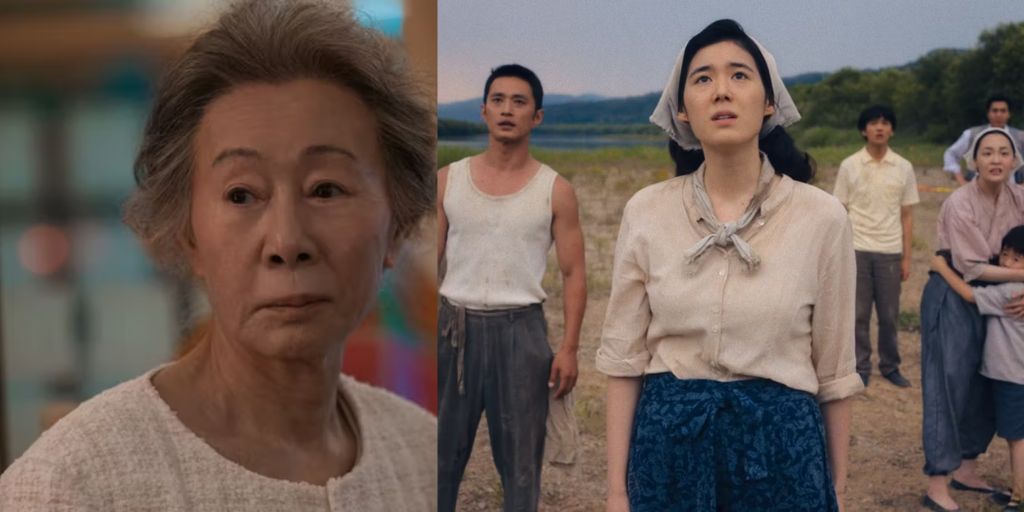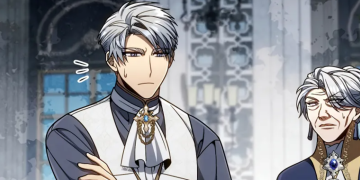Many television series portray World War II, but not all can effectively show the devastating impact of war on people’s lives. Few shows capture the profound emotional changes that occur when everything familiar is suddenly lost.
Apple TV+’s Pachinko is one series that succeeds in this portrayal, particularly in Season 2, Episode 3. This episode illustrates how war dramatically alters the lives of Sunja (Minha Kim) and her family, and it provides a unique perspective on how a child experiences such a life-altering event.
In the beginning of Episode 3, Sunja and her sister-in-law, Kyunghee (Jung Eun-chae), face the harsh reality of their changed lives. They must maintain brave faces in front of Sunja’s children, Noa (Kim Kang-hoon) and Mozasu (Eun-seong Kwon), despite their own fears and uncertainties.
The adults are deeply troubled by the war’s impact and the seeming unfairness of it all. In contrast, Mozasu shows a more innocent and lighthearted acceptance of their new reality. This contrast highlights Pachinko’s strength in presenting a heart-wrenching yet honest narrative about the effects of war on different generations.
The episode shifts between 1945 and 1989, connecting the lives of different generations through their shared experiences of struggle and survival. In this way, Pachinko emphasizes how the past continues to influence the present, bridging the gap between Sunja’s life in the 1940s and her grandson Solomon’s (Jin Ha) experiences in 1989.
A Chaotic Escape from the City
The episode opens with nearly complete darkness, which makes it challenging to see the unfolding action. Despite this, the sounds of air sirens and planes clearly indicate that the war has reached their city. People run frantically through the streets, and Sunja and her family are trying desperately to stay together.
Hansu (Lee Minho) gathers them, urging Sunja and Kyunghee to pack their belongings quickly. Sunja assures Kyunghee that Hansu is a trusted family friend, although this isn’t entirely truthful.
Mr. Kim (Kim Sungkyu), Hansu’s assistant, helps them pack, although deciding what to take and what to leave behind is a painful task. They hurry to Hansu’s car and try to drive through the congested streets filled with desperate people trying to escape.
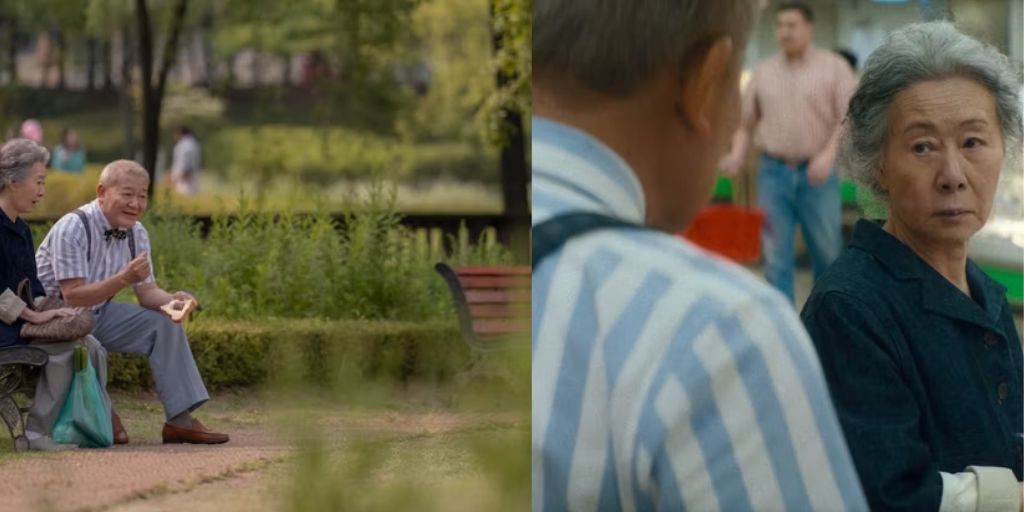
In a poignant moment, Sunja sees her friend Jiyun (Jeong Sori) and wants to stop and help her. However, the men explain that stopping would jeopardize their escape. As they drive away, people bang on the car and plead for help. The final image of the scene shows the car leaving behind a city filled with explosions, while Noa watches in horror as their world is destroyed.
When daylight comes, the family arrives at a countryside home that Hansu has arranged for them. The women ask when they can return home, but Hansu grimly informs them, “I doubt your home is even standing now.” Each woman has her own reservations about staying.
Kyunghee is reluctant to be so far from her husband and live with Mr. Kim, which is considered improper at the time. Sunja fears what it means to accept Hansu’s help and wonders if she will end up further in debt to him. She also worries about whether Noa will start suspecting Hansu’s true identity.
Reflecting on her situation, Sunja laments how much has changed since she first met Hansu 14 years ago, saying, “I am no longer the girl at the cove… I’m a widow now, like my mother.” She walks away in tears, resigned to her fate.
Finding Moments of Normalcy Amidst War
In the following scenes, Hansu continues to visit Sunja and her family. Sunja and Kyunghee work in the rice paddy fields, facing the scorn of coworkers who look down on them for being Korean. Despite the challenges, Hansu’s visits provide moments of comfort.
He brings a radio, candy for Mozasu, and newspapers for Noa, telling him to “learn to read what is not there.” Hansu is trying to encourage Noa’s intelligence and understanding of the world. Sunja reminds Noa to remember his father, and Noa assures her that he will never forget.
Hansu also brings a kite for the boys, and there is a brief moment of joy as they fly it. However, their happiness is interrupted by the sight of planes flying overhead.
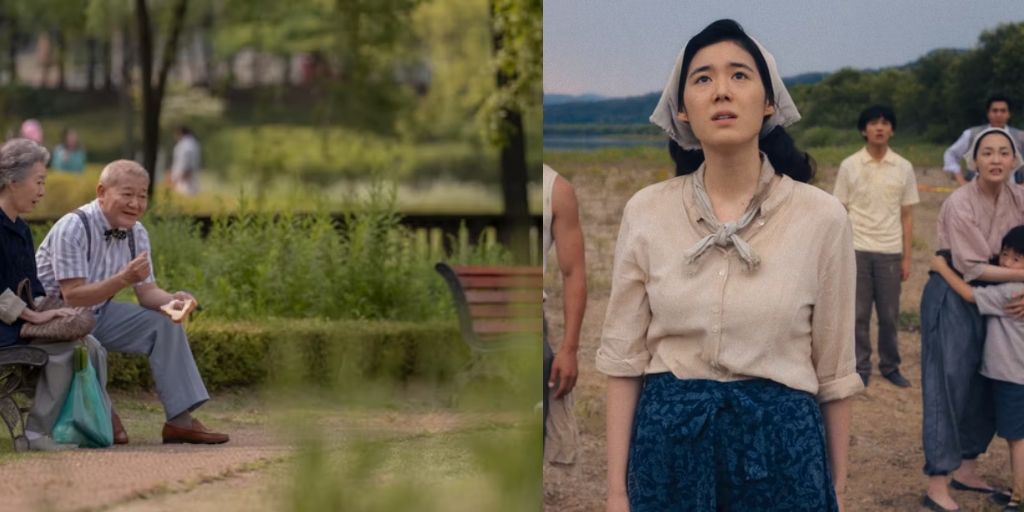
The family fears for their safety, but Mr. Kim reassures them that the planes are heading north, away from them and Kyunghee’s husband. Even in these fleeting moments of escape from the war’s heaviness, the sense of danger remains ever-present.
A Fun Stakeout Turns into a Lesson
Despite the move to the countryside, Mozasu finds excitement in their new life, especially when a thief begins stealing their eggs. Mr. Kim suggests a stakeout to catch the culprit. With white headbands tied around their heads, Mozasu, Noa, Mr. Kim, and Kyunghee wait to catch the thief.
During their wait, the boys question Mr. Kim about his past. He shares that he met Hansu about 15 years ago when he was on the docks. Mr. Kim credits Hansu with rescuing him from a troubled life.
He explains that his family owned a farm in Korea, but a clerical error by a Japanese official led to their land being seized due to unpaid taxes.
His younger siblings were separated from him, and his parents’ marriage fell apart. Tragically, his father went to the fields one day and never returned. Mr. Kim recounts, “I buried him there, where his potatoes once grew.”
This story provides a view into Mr. Kim’s past, and his openness visibly moves Kyunghee. The group discovers that the thief is a young boy, one of Noa’s classmates from the city who used to bully him. The boy explains that he and other kids are evacuees who are always hungry.
Noa, showing compassion, decides to let the boy go and gives him some eggs. Mr. Kim praises Noa’s decision, saying, “It is better to have an enemy owe you than the other way around.”
Solomon’s Struggle and Growth in 1989
Older Sunja (Oscar winner Youn Yuh-jung) reappears in the storyline, showcasing her resilience. While shopping at a grocery store, she encounters an older man (Jun Kunimura) who acknowledges Solomon’s courage for speaking up.
Sunja feels uncomfortable discussing personal matters with a stranger, but she sees the man again at a park where he feeds the birds. She tells him that Solomon “is a good boy, but he’s struggling at the moment.” The man sympathizes with their situation and remarks, “You can’t blame him for not living in a world gone mad, can you?”
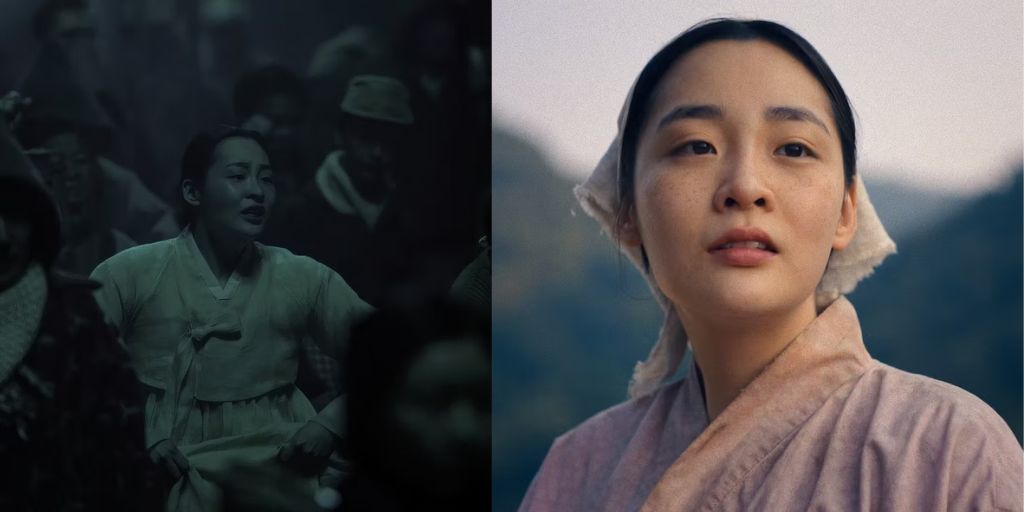
This dialogue contrasts Sunja’s earlier experiences with those of her grandson Solomon in 1989. Both face a world where their struggles as Koreans are often overlooked or dismissed. Sunja confesses her disappointment that life seemed more difficult for Solomon than she had hoped.
The man responds, “No matter the time, life is never easy…unless we’re gods.” As the scene ends, the man shoos the birds away, symbolizing the harsh realities they face.
Solomon Seeks Redemption and Relationships
The episode also features two returning actors from Season 1, Jimmi Simpson and Anna Sawai, who add depth to Solomon’s storyline. Solomon meets with Tom Andrews (Simpson) at Shiffley’s, revealing that Abe-san (Yoshio Maki) is now the new target.
Tom is hesitant to help until Solomon acknowledges that he knows about Tom’s past issues with the firm. Tom admits that he wants to see his children more frequently, but Solomon pushes him, suggesting that what he truly wants is to return home. Solomon convinces Tom to assist him in proving his worth to the firm and potentially returning to the U.S.
Solomon then talks to Naomi (Sawai), telling her that the landowner plans to sell. He also expresses his belief that Naomi deserves to run the place due to her intelligence and hard work. Solomon’s genuine admiration for Naomi leads to a date where he takes her to a modest restaurant for yakitori (Japanese kebabs).
He admits that the place is cheap but still good, showing his true self. Solomon is honest about his situation, saying, “You’re free to walk away, no hard feelings,” and he reveals, “I’m not always going to be this low.” Naomi responds thoughtfully, toasting him with her beer, signaling the beginning of their relationship outside of work.
Comparing Timelines and Closing Moments
The episode concludes with Solomon watching Han Geum-ja (Park Hye-jin) leave her home for the last time. He confirms that the property now belongs to Abe-san, marking the start of his plan to take down Abe-san. The scene shifts to 1945, where Kyunghee, unable to sleep, goes for a walk and sees Mr. Kim awake.
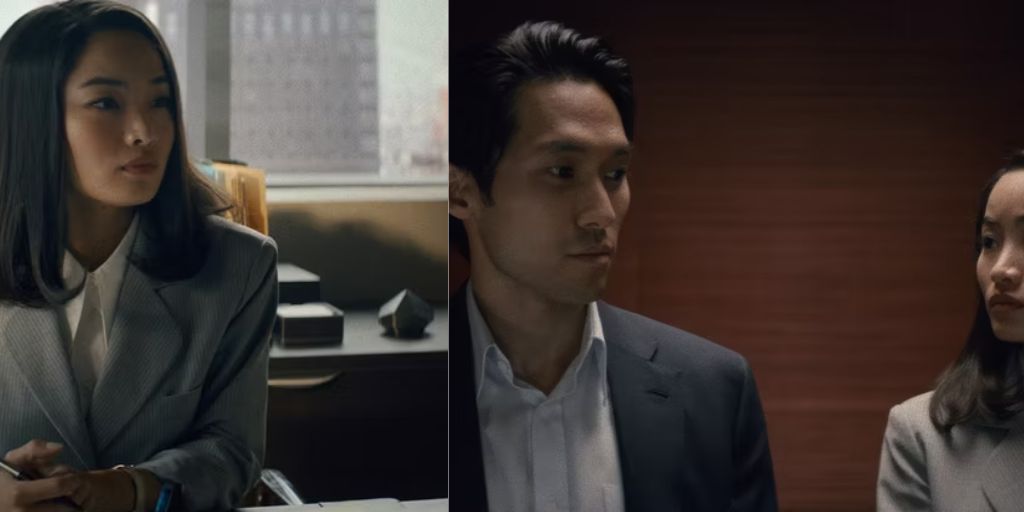
She watches him quietly but does not approach him. The episode ends with a lightning storm, symbolizing new challenges and paths for both Kyunghee and Solomon.
This episode stands out for its strong performances, particularly by Yuh-jung, and the inclusion of familiar actors from Season 1. It skillfully contrasts the struggles of different timelines, highlighting Sunja and Solomon’s ongoing battles to maintain their dignity and hope amid overwhelming circumstances.
New episodes of Pachinko Season 2 are available to stream every Friday on Apple TV+ in the U.S.


